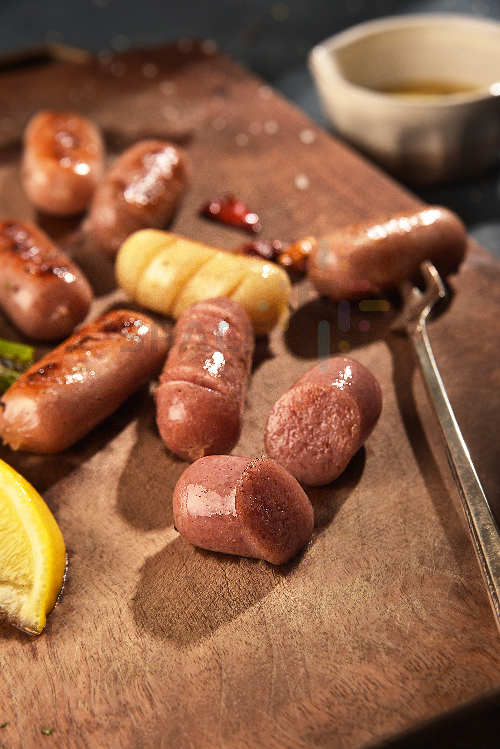“I can hardly feel the difference in texture”
Food Security Animal Rights Protect the Environment
Responsible for existing industry supplements

Space F, a cultured meat development company, announced prototypes of sausages, hamburger patties, and chicken nuggets made with cultured meat earlier this year. A tasting event was held by inviting meat experts and managers of large distribution companies. Byeong-hun Kim, CEO of Space F, said, “The panelists hardly felt a difference in taste and texture between cultured and fresh meat.”
Cultured meat refers to meat obtained by harvesting stem cells from livestock such as cattle and pigs and culturing them using cell engineering technology. CEO Kim said, “Among various alternative proteins such as vegetable protein and edible insects, cultured meat has the advantage of being the most similar to fresh meat and having a fast production speed.”
CEO Kim said that it takes about a month to make 1 kg of meat in the laboratory with one cell. Production capacity is determined by how many production facilities are secured. If you start with 50 cells, you can produce 50kg of meat in a month.
After graduating from the Department of Physics, Kim worked as a semiconductor engineer at Samsung Electronics. His first entrepreneurial field was food distribution. I was in the business of distributing imported food to domestic conglomerates. He introduced the background of Space F’s founding, saying, “I learned that there are more food products that depend on imports than I thought, and that the distribution structure is weak.”
In particular, trade has become unstable due to the recent coronavirus and Ukraine crisis, which has led to a rise in grain prices. CEO Kim said, “As food supply and demand are not smooth, interest in alternative meat that is produced sustainably and safely in factories and laboratories has increased.” In particular, Space F supplemented the ethical and functional aspects by using serum-free culture medium instead of using serum from bovine and pig fetuses.
CEO Kim said, “Cultivated meat serves as a supplement rather than replacing the existing industry or taking over the market,” adding, “It is a way to solve food security issues and respond to animal rights and environmental issues.” "In the case of Singapore, the cultured meat market is open for environmental protection and food supply, and companies around the world are waiting for them to build factories and distribute them," he said. "You can still order cultured meat burgers for delivery through a smartphone application." did.
A consortium consisting of Space F, Seoul National University, Sejong University, Daesang, and Lotte Fine Chemical was recently selected for a cultured meat research project supported by the Ministry of Trade, Industry and Energy. It will receive 20 billion won in research funding over the next five years. Last year, it received a series A investment of 7 billion won.


![[스타트人]스페이스에프 “배양육, 신선육과 가장 유사…생산도 빨라”](http://spacef.biz/wp-content/uploads/2023/05/2022063009140132278_1656897339-500x684.jpg)